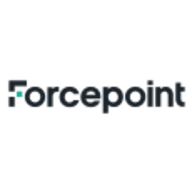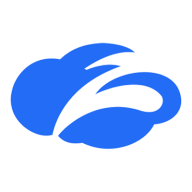


Forcepoint Data Loss Prevention and Zscaler Zero Trust Exchange Platform offer robust data security solutions. Forcepoint appears to have the upper hand due to its comprehensive suite of features and integration capabilities.
Features: Forcepoint provides endpoint discovery, out-of-the-box templates, and fingerprinting technology. It enhances cloud application security and integrates seamlessly with SIEMs. Zscaler supports automatic VPN connections, offers flexible internet security, and features a unified platform for easy cloud integration.
Room for Improvement: Forcepoint struggles with support response time, language options, and false positives. It requires better Mac OS integration and enhanced OCR capabilities. Zscaler needs to improve speed and bandwidth, integration with legacy systems, and resolve latency issues.
Ease of Deployment and Customer Service: Forcepoint has detailed support, but its complex setup process can be challenging. Zscaler offers smoother integration and faster setups, though clearer implementation guides are needed.
Pricing and ROI: Forcepoint is viewed as expensive, but its features justify the cost and offer good ROI through compliance and data protection. Zscaler’s pricing is based on user volume; it can be costly, but bundled features provide strong value.
For the small project I was working on, using the basic tier provided a huge improvement at zero cost.
In terms of return on investment with Cloudflare, it costs my time to set them up, but basically once they're set up, it's done.
I have seen a return on investment, and the biggest one is saving time.
We don't have to purchase many components such as load balancers and proxy servers that were necessary in traditional setups.
Cloudflare does not offer hands-on technical support to fix customer problems but rather a self-service model.
I would rate the technical support with Cloudflare as excellent every time I've had to call them.
I have primarily worked not with the tool's customer support but with the product's sales engineers and technical sales engineers, who seem to know their stuff.
They conduct sessions to check logs and policies, unlike Symantec, where engineers may temporarily check and ask for logs, causing delays.
We were very happy with the technical support engineers that are supporting us.
Sometimes, support takes time since the solution has some bugs that need fixing.
It is a SaaS tool, but the fact that they have workloads deployed across the world proves that it is a highly scalable tool.
The tool offers very good performance, even during high-traffic periods.
I rate the solution’s scalability an eight out of ten.
The key principle of a scalable DLP uses a single policy engine across multiple data channels such as endpoint, email, web, cloud, and network.
It is easily scalable because it is purely deployed on on-premises and with less downtime.
I rate the solution’s stability an eight out of ten.
The service is very stable with no impacts during high-traffic periods.
The stability of Forcepoint Data Loss Prevention is reliable, with minimum crashes, errors, or performance issues.
Despite these challenges, overall, Cloudflare remains the preferred solution compared to Azure, AWS CloudFront, and Google Cloud Armor.
Areas like how assessment, discovery, and payload are dealt with and how it all comes into your organization can be considered when trying to make suggestions to Cloudflare for improvements.
There are some performance considerations when it comes to dynamic content that involves fetching data from databases or using APIs.
While Forcepoint is mostly on-premises, I suggest that to compete with Symantec, they should consider cloud solutions.
Forcepoint Data Loss Prevention is already capable enough to integrate with data classification tools such as Boldon James and Microsoft MIP.
Improvement in Forcepoint Data Loss Prevention, especially when applying a positive DLP approach, needs to focus on decreasing false positive incidents.
They might be able to identify if something is missing with Zscaler.
I find it to be cheap.
I rate the product’s pricing a five out of ten, where one is cheap, and ten is expensive.
The tool is a premium product, so it is very expensive.
There have been situations where the license expired before the purchased license was sent, resulting in the DLP being out of service.
The pricing is reasonable and medium, not very low, but fair for the product offered.
My experience with pricing, setup cost, and licensing for Forcepoint Data Loss Prevention is that the pricing was reasonable.
The most valuable features of the solution are performance and security.
Techniques like minification and image compression reduce the size of assets, leading to better performance and faster user load times.
The solution has been able to compare it to the market, and I think the product has taken great strides in automating quite a bit of things, and they use a lot of AI.
It provides multiple customization options for policies, which makes it superior to Symantec.
It supports 50 file types and continuously improves accuracy with user feedback, enabling auto-discovery across cloud, endpoint, and on-premises data stores without extra cost of repeated scans.
Forcepoint Data Loss Prevention's email workflow checks whether emails sent from the office are forbidden by DLP rules and sends a notification to the manager accordingly.
The solution is cloud-based with the latest inspection engines, which I find to be amazing.
We have excellent account management, smooth marketplace engagement, and processing in how my team or organization uses Zscaler Zero Trust Exchange Platform.


| Company Size | Count |
|---|---|
| Small Business | 46 |
| Midsize Enterprise | 8 |
| Large Enterprise | 25 |
| Company Size | Count |
|---|---|
| Small Business | 33 |
| Midsize Enterprise | 6 |
| Large Enterprise | 27 |
| Company Size | Count |
|---|---|
| Small Business | 16 |
| Midsize Enterprise | 12 |
| Large Enterprise | 41 |
Cloudflare enhances web performance and security with features like CDN caching and DDoS mitigation while providing easy DNS management and intuitive setup through its user-friendly dashboard.
Cloudflare is recognized for its comprehensive web security and performance solutions. Speed improvements are achieved through caching mechanisms and DDoS protection, combining ease of DNS management with flexible page rules. The robust analytics and threat insight tools provide valuable data, assisted by a user-friendly dashboard allowing quick setup and configuration. An API offers dynamic DNS settings ensuring low latency and high performance across the globe.
What are Cloudflare's key features?Cloudflare finds utility across industries for DNS management and defense mechanisms. Its content delivery network assures fast content distribution and fortified security. Businesses integrate features like web application firewalls, load balancing, end-to-end SSL, and zero trust to protect websites from cyber threats while ensuring resilience and reliable performance.
Forcepoint Data Loss Prevention (DLP) protects sensitive data everywhere it resides and moves, across endpoints, cloud apps, web, email, and on-premises environments. It delivers unified policies and centralized visibility to simplify compliance and prevent data breaches in real time.
With over 1,800 pre-defined templates, policies, and classifiers covering the regulatory requirements of 90+ countries and 160+ regions, Forcepoint DLP accelerates deployment and ensures precise protection of regulated and sensitive data.
Flexible deployment options let organizations protect data on-premises, in the cloud, or through a hybrid approach using the same unified console. Powered by AI-driven classification and Risk-Adaptive Protection (RAP), Forcepoint DLP reduces complexity, automates compliance, and safeguards data wherever work happens.
Forcepoint Data Loss Prevention is equipped with advanced fingerprinting technology, optical character recognition, and a large library of predefined rules. Organizations gain comprehensive data visibility and effective policy enforcement, supported by dynamic user behavior analysis and compliance capabilities. Its intuitive interface and flexible deployment options position it as a top choice for data security, although it could improve in communication reliability and language support. Complex reporting, machine learning integration, and cross-platform compatibility require enhancements.
What are the key features of Forcepoint Data Loss Prevention?
What benefits and ROI can users expect from reviews?
In industries like finance, legal, and healthcare, Forcepoint Data Loss Prevention is implemented to protect sensitive data such as credit card information and personal identification. It monitors and controls data on networks, endpoints, and cloud services, detecting unauthorized transfers through features like OCR and fingerprinting.
Zscaler Zero Trust Exchange enhances security with seamless cloud-based connectivity and VPN-less operation, offering integration with multiple identity providers and advanced security features, suitable for remote work environments.
Zscaler Zero Trust Exchange provides secure, adaptive connectivity without traditional VPNs, allowing organizations to replace legacy systems and bolster remote work security. The platform offers cloud-based protection, single sign-on, dynamic URL categorization, and scalable solutions. While advanced security features like DLP and threat protection enhance data protection, users may face issues with speed, connectivity, and some customization options. Integration challenges, latency due to multi-tenant hosting, reporting delays, and licensing costs require consideration. It supports secure internet access and private application security, ensuring traffic control and data compliance.
What are the key features of Zscaler Zero Trust Exchange?Zscaler Zero Trust Exchange is deployed across industries to secure remote access and enforce zero trust principles. Organizations in finance, healthcare, and technology sectors utilize it for secure internet access and visibility into cloud applications, enhancing performance and compliance in dynamic environments.
We monitor all Data Loss Prevention (DLP) reviews to prevent fraudulent reviews and keep review quality high. We do not post reviews by company employees or direct competitors. We validate each review for authenticity via cross-reference with LinkedIn, and personal follow-up with the reviewer when necessary.